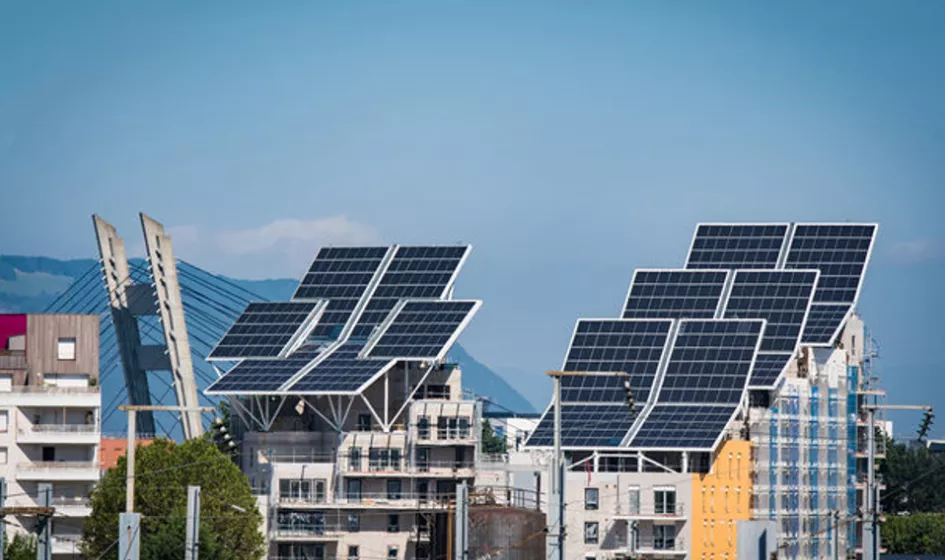At the beginning of this year, the ABC Grenoble (Autonomous Building for Citizens) property programme, supported by Bouygues Construction, entered its operational phase with the implementation of its "Energy" component. The aim is to move towards energy autonomy by maximising the consumption of locally produced photovoltaic energy through a collective self-consumption approach.
Collective self-consumption unites, on the scale of a building or district, one or more sources of electricity production and private and/or professional consumers. The parties (producers and consumers) are linked together within an organising legal entity whose role is to set the key for the production/consumption split. The distribution network operator, to which the producers and consumers are connected, provides the information necessary for the operation and billing.
The main objective of a collective self-consumption operation is to make consumers key players in the energy transition. They are no longer just consumers, but instead they are responsible for contributing to a process of decentralisation, placing electricity production as close as possible to its consumption. Self-consumption helps to promote the deployment of renewable energies and, thanks to storage systems, can facilitate their integration into the electricity system.
In order to meet the energy ambitions of the ABC Grenoble real estate programme, an energy system based on 3 key elements has been implemented:
- A set of photovoltaic plants totalling 213 kWp was installed on the roofs of the buildings by the company SOLSTYCE
- A battery energy storage system, designed by Socomec, allows the consumption of locally produced electricity to be maximised, based on daily estimates produced via Bee Bryte's EMS (Energy Management System)
- The management of the self-consumption project by the GEG group, which brings together the consumers participating in the operation and GEG ENerR, the operator of the photovoltaic power plants, within the framework of an agreement.
"While the environmental benefits of collective self-consumption are obvious, the economic approach is yet to be demonstrated. The price per kilowatt consumed will be close to the regulated tariff, as consumers will have to contribute to the amortisation of the photovoltaic plant and storage system, but also pay the TURPE (transmission network access tariff) and various taxes."
